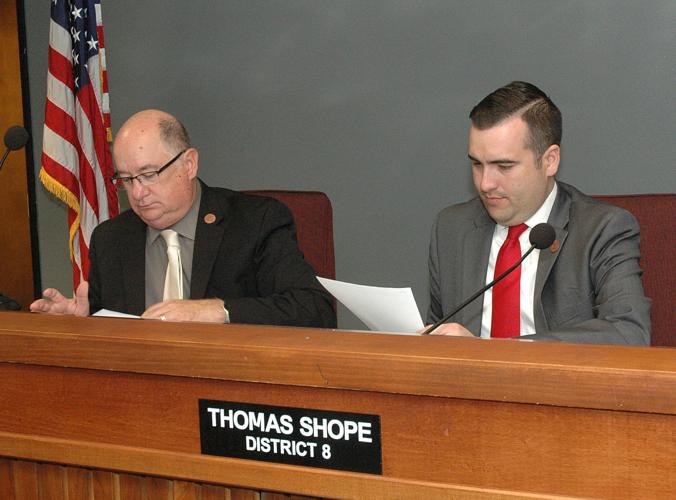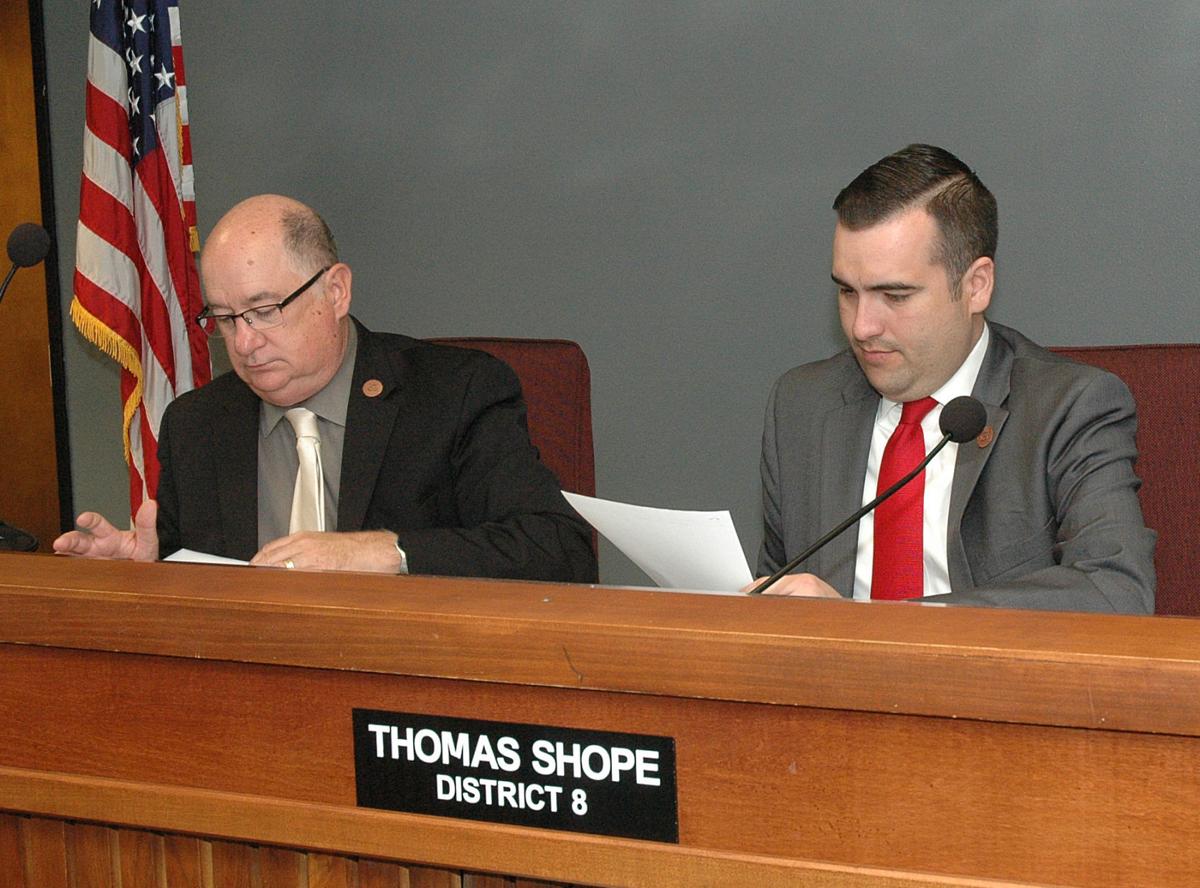PHOENIX — The House Ethics Committee voted Wednesday to require Rep. David Stringer, who is facing complaints about his remarks and a 1983 arrest on sex charges, to submit to an interview with attorneys and produce certain documents with no promise to keep the information secret.
The 4-1 vote came after the Prescott Republican said he would provide the documents sought in the subpoena but wanted to keep them secret. According to committee chairman Rep. T.J. Shope, Stringer said the documents were “sensitive.”
“The issues that are before us warrant following through on a subpoena that I was loath to have to sign,” Shope said, saying he had hoped Stringer would voluntarily agree to speak to investigators and to produce the documents. He did not.
“These documents, we believe, will help shed a light on this entire situation,” Shope said.
It was not just Shope who was unwilling to give Stringer the cover of confidentiality.
Rep. Kirsten Engel, D-Tucson, said it is important that the public have confidence in the investigation of Stringer and what recommendations the panel makes to the full House about his future.
“Integral to having public confidence is the transparency of our deliberations and the information on which it is based,” she said.
Stringer has been given until Wednesday, March 27, to produce the documents, and until Friday, March 29, to submit to an interview with the attorneys hired by the committee.
There was no immediate comment from Stringer, who did not attend Wednesday’s meeting.
Less clear is what happens if Stringer refuses to provide the documents or submit to an interview.
“I can’t speak for the other four members of this committee who may at some point have to make a recommendation,” Shope said. One option, he said, would be censure.
But the ultimate penalty for failing to comply — one that would have to be imposed by the full House — could be expulsion.
Stringer may face that anyway in connection with two separate charges against him.
The first, by Rep. Reginald Bolding, D-Laveen, deals with comments that Stringer made to the Republican Men’s Forum in Prescott warning that immigration “represents an existential threat to the United States” and needs to be curtailed before the country is irrevocably altered. There were other comments about integration and how only people from European countries fully assimilate.
Bolding’s complaint also includes more recent remarks Stringer made to students at Arizona State University that assimilation doesn’t work with African-Americans and other racial groups “because they don’t melt in, they don’t blend in, they always look different.”
Stringer has never denied making the comments, though he said some were taken out of context.
But the potentially more serious issue — and the one for which there are no public documents or videotapes — relates to the fact he was arrested in 1983 in Baltimore on multiple sex-related charges.
Court records obtained by New Times show that Stringer, then working in Washington, D.C., faced five separate charges. One, according to the copies of documents the paper placed online, was for child pornography.
The paper reported that Stringer eventually pleaded guilty to three charges — Stringer’s account says two — with a deal that would result in the records being erased if he completed probation.
Rep. Kelly Townsend, R-Mesa, filed her own complaint against Stringer, calling his reported criminal record “egregious.”
Stringer told Capitol Media Services at the time that he was never “convicted of a crime,” with the case “expunged 29 years ago.”
But he never has provided any details of the offenses for which he was arrested or why he agreed to plead guilty. In fact, he argued that it was illegal for Maryland officials to have made the court records available.
The Ethics Committee appears to want to review any records that Stringer has related to that incident.
Stringer said earlier this year that since he remains a member of the Maryland Bar Association, which regulates attorneys, “it might be illegal” for him to provide details of sealed and expunged records.
Shope would not spell out what documents the committee has subpoenaed.
“We will release all that to you when the report is done,” he said.






